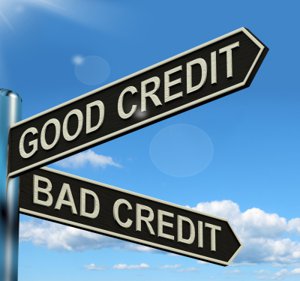How to Get Started Adding an Accessory Dwelling Unit in New York City

Thinking about adding an Accessory Dwelling Unit (ADU) in New York City? Thanks to the new City of Yes for Housing Opportunity changes, building an ADU is more accessible than ever. But there are important steps and requirements to keep in mind. First, check that your property meets all zoning
Read More-

What NYC Renters Need to Know About the Game-Changing Fare Act: Insights from Annmarie Triolo's SI Advance CommentaryThere’s a lot of buzz swirling around the new NYC Fare Act, and understandably so—this legislation marks a major shift in how broker fees are handled for renters and landlords across
Read More The Power of Giving Back: How Staten Island Realtors Brought Smiles to Pediatric Oncology Patients

The Power of Giving Back: How Staten Island Realtors Brought Smiles to Pediatric Oncology Patients There’s something truly magical about the power of giving back—especially when it springs from a place of personal understanding. As a breast cancer survivor, I know firsthand how much a simple act of
Read MoreWhere Have All the Ranch Homes Gone? Staten Island’s Senior-Friendly Housing Shortage

Where Have All the Ranch Homes Gone? Staten Island’s Senior-Friendly Housing Shortage In 2023, I was quoted in the Staten Island Advance in a discussion about the growing shortage of senior-friendly housing on Staten Island—a topic that’s becoming more important as our baby boomer population ages. T
Read MoreStaten Island’s Resilient Market: Reflecting on My 2023 Prediction in the Staten Island Advance

Staten Island’s Resilient Market: Reflecting on My 2023 Prediction in the Staten Island AdvanceLast year, I had the privilege of being quoted in the Staten Island Advance as local experts weighed in on predictions for the summer 2023 real estate market. While national headlines forecasted a signific
Read MoreHonored to Serve: Reflections on Becoming the 63rd President of the Staten Island Board of Realtors

Honored to Serve: Reflections on Becoming the 63rd President of the Staten Island Board of Realtors There are moments in life when the path you’ve walked—every late night, every handshake, every lesson—suddenly comes into focus. Being inducted as the 63rd President of the Staten Island Board of Re
Read MoreHow New Commission Rules Are Empowering Buyers and Sellers: Insights from Annmarie Triolo

How New Commission Rules Are Empowering Buyers and Sellers: Insights from Annmarie TrioloThe real estate landscape is always evolving, but few changes have sparked as much conversation lately as the new rules around buyer’s agent commissions. If you’ve been following the headlines, you’ve likely see
Read MoreWhat the ‘City of Yes’ Rezoning Could Mean for Staten Island Homeowners

What the ‘City of Yes’ Rezoning Could Mean for Staten Island HomeownersRecently, I had the opportunity to share my thoughts with the Staten Island Advance about the city’s ambitious “City of Yes” rezoning proposal—a plan that could reshape neighborhoods across New York City, including right here on
Read MoreA Reflection on Being Recognized as a Staten Island Real Estate Expert

A Reflection on Being Recognized as a Staten Island Real Estate Expert Being recognized in the Staten Island Advance article, “In the market for a Staten Island home? Here’s what $650K will get you,” was a moment of pride and gratitude for me. It’s not every day that your perspective is featured in
Read MoreUnlocking the Secret to Pricing Your Home Right: Top Tips from a Realtor Broker Owner!
.png)
If you're planning to sell your home, pricing it correctly is one of the most important decisions you'll make. A price that's too high could scare off potential buyers, while a price that's too low could mean you miss out on maximizing your profits. So how do you determine the right price for your h
Read MoreNavigating the Probate Process: A Guide for Petitioners Selling a Home

As a realtor, I understand that selling a home under probate can be a complex process that requires careful attention to legal and administrative details. When a homeowner passes away and leaves behind a will or trust, the process of administering their estate and distributing their assets is know
Read More-

SPRING IS FINALLY HERE! Here's the latest real estate market update for the onset of Spring in 2023!
Read More Quoted in the Staten Island Advance: Why Today’s Housing Market Is Not 2008 All Over Again

Quoted in the Staten Island Advance: Why Today’s Housing Market Is Not 2008 All Over Again I’m excited to share that I was featured in the Staten Island Advance, discussing how rising mortgage rates are shaping our local housing market. It’s been a whirlwind year for real estate, and there’s a lot
Read MoreSo You're Ready to Buy a House...Now what?
Buying a home can be one of the most exciting and rewarding experiences of your life. However, it can also be a complicated and stressful process if you're not prepared. Here are some home buying tips to help make the process smoother and more enjoyable: Get pre-approved for a mortgage: Before you s
Read MoreWhat is a Comparative Market Analysis (CMA)?

As a realtor, one of the most important tasks is to help clients understand the value of their property in the current market. This is where a Comparative Market Analysis (CMA) comes into play. A CMA is a report that compares a property to similar properties in the area to determine its fa
Read More-

Opening Doors: The Inspiring Journey of a Single Mom Who Launched a Real Estate Office During the Pandemic Starting a new business is never easy, but doing so in the midst of a global pandemic? That takes extraordinary courage, resilience, and heart. This is the story of a remarkable woman whose jou
Read More -

6 Factors That Could Damage Your Credit Score Having good credit is essential for a number of aspects of your life, ranging from the interest rate on a car loan or credit card to background checks for employment. Poor credit can be incredibly expensive, costing you thousands of dollars in higher i
Read More -

Market Conditions October 6, 2022

Here is our Broker/Owner, Annmarie Triolo's latest video on our market conditions.
Read MoreQuoted in the Staten Island Advance: The Real Value of ‘Buy and Die Neighborhoods’

Quoted in the Staten Island Advance: The Real Value of ‘Buy and Die Neighborhoods’I’m excited to share that I was quoted in the Staten Island Advance back in August 2022, discussing a unique phenomenon in Staten Island real estate—what I call “buy and die neighborhoods.” These are special pockets of
Read More
Recent Posts









.png)
